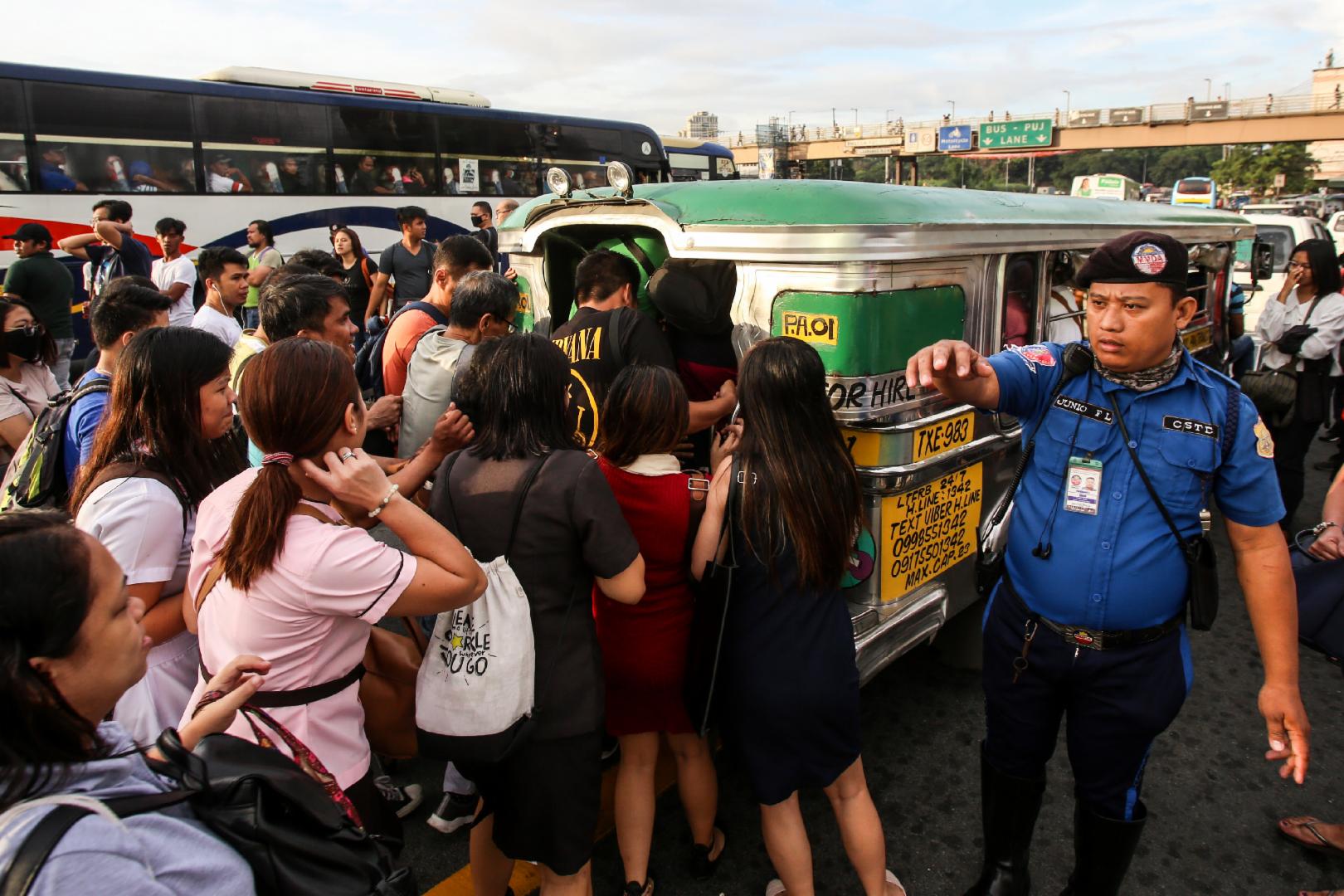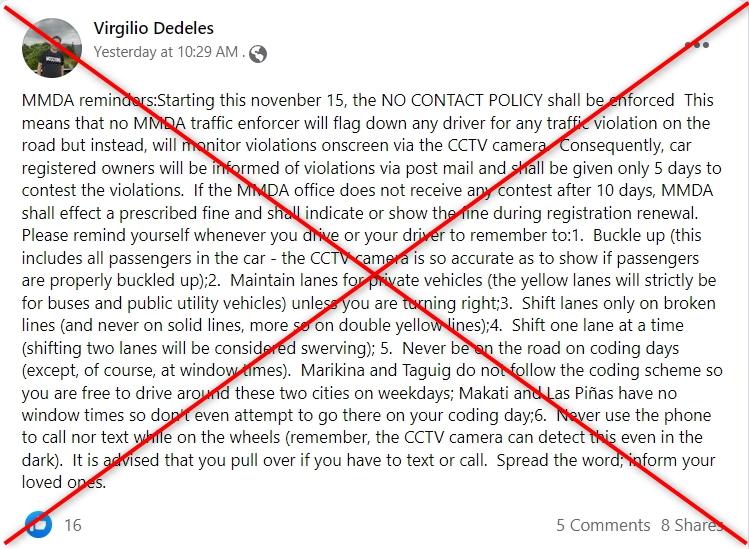
Posts mislead on traffic enforcement in Philippine capital
- This article is more than three years old.
- Published on August 30, 2022 at 11:28
- Updated on September 2, 2022 at 03:24
- 2 min read
- By AFP Philippines
The misleading announcement was shared on Facebook on August 24.
It partly reads: "MMDA reminders: Starting this November 15, 2022, the NO CONTACT POLICY shall be enforced.
"This means that no MMDA traffic enforcer will flag down any driver for any traffic violation on the road but instead, will monitor violations on screen via the CCTV camera.
"Consequently, car registered owners will be informed of violations via post mail and shall be given only 5 days to contest the violations."
The post goes on to list driving tips.

The Metropolitan Manila Development Authority (MMDA) manages transport policy across the capital region alongside the region's 16 cities and one municipality.
Its "No Contact Apprehension Policy" is a programme that uses cameras installed throughout the region to spot traffic violations.
The programme was first implemented more than a decade ago and was revived in 2016.
The post circulated after local media reported that transport groups had asked the Supreme Court to stop similar "no contact" policies by several cities in the capital.
On August 30, the court issued a temporary restraining order to halt these policies and is set to hear arguments in January 2023.
The order covers the MMDA’s "no contact" policy, according to court spokesperson Brian Hosaka.
Claims that MMDA would only rely on road cameras starting from November were also shared on Facebook here, here and here.
Comments suggest social media users believed the posts showed an authentic announcement from the MMDA.
"Thank you for this information", wrote one.
"I hope they fix the timers for the traffic lights first before they enforce this", said another.
But the MMDA said the posts share "wrong information".
Traffic enforcers
In a statement posted on its official Facebook page on August 24, the agency said: "Wrong information is spreading about the MMDA's No Contact Apprehension Policy.
"MMDA's traffic enforcers will continue to give citations to motorists who will violate traffic rules."
The statement includes a screenshot of a similar post making the misleading claim that had been stamped: "Fake! Not from MMDA".
According to the agency's website, the programme will not rid roads of traffic enforcers.
"It was conceptualised to supplement the presence of MMDA traffic enforcers," the website states.
"Aside from the fact that there are still places not covered by CCTVs, the No Contact Traffic Apprehension was designed to catch moving violations, thus leaving the apprehension of administrative offences to MMDA constables."
A representative from MMDA told AFP that "there are violations which can only be verified through physical apprehension".
"These administrative offences include driving without a licence or driving an unregistered public vehicle", the representative added.
The agency's explanation about the policy also states that individuals who receive a 'notice of violation' can protest their citation within seven days -- not five days as stated in the posts.
Further keyword searches show the misleading announcement has been circulating online since at least 2018.
September 2, 2022 This article was updated to include a comment from a Supreme Court spokesperson.
Copyright © AFP 2017-2026. Any commercial use of this content requires a subscription. Click here to find out more.
Is there content that you would like AFP to fact-check? Get in touch.
Contact us
